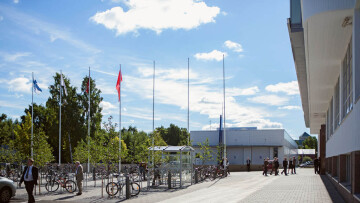Welcome to Maritime AI Meet up 31st May at Aboa Mare
The Maritime AI Meet up on 31st May 5.30 pm – 7 pm is held at Aboa Mare (meeting room Tiiskeri, 2nd floor). Event host Mirva Salokorpi from Novia University of Applied sciences will start the event with short introduction about current activities in Novia.
Key notes by
- Fahimeh Farahnakian, post-doctoral researcher, lecturer, Maritime Situational Awareness through Multi-sensor Fusion
- Johan Lilius, professor of Embedded Systems at Åbo Akademi, MASS research at the MAST institute
Please register at: https://www.meetup.com/Turku-ai/events/285941404/
INFORMATION ON THE KEY NOTES
MARITIME SITUATIONAL AWARENESS THROUGH MULTI-SENSOR FUSION, FAHIMEH FARAHNAKIAN, POST-DOCTORAL RESEARCHER, LECTURER
Multi-sensor fusion technology has been widely used in many real applications to achieve complementary detailed environment description based on the information from different sensors. With the rapid development of Deep Learning (DL) networks for computer vision tasks, DL-based fusion methods can significantly improve the performance of sensor fusion. In order to understand the main development status of DL-based image fusion methods pipeline, thoroughly and deeply, in this presentation, I first provide a comprehensive overview of a variety of DL-based image fusion methods.
MASS RESEARCH AT THE MAST INSTITUTE, JOHAN LILIUS, PROFESSOR OF EMBEDDED SYSTEMS AT ÅBO AKADEMI
The MAST (Maritime Software Technology) institute is a joint research initiative of Åbo Akademi Information Technology and Novia Maritime Academy founded in 2018. In this talk I will cover our ongoing research and discuss some the central problems that we are addressing. The main demonstrator of our research is the autonomous vessel Åboat, that has been under construction from 2019. Currently the vessel is able to autonomously navigate along a set route and has been demonstrated in the Marina at Taalintehdas. I will present the sensor and software architecture of the vessel and discuss some of the issues that we have had to solve along the way. The vessel does not yet include colission avoidance algorithms, therefore we are now actively working towards developing solutions to this problem. The talk will thus close with a discussion about collision avoidance algorithms and their COLREG-compliance.
